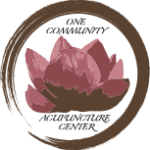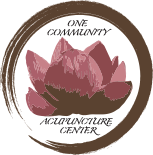Short answer: Yes.
Long answer: Yes, but…..there are a few things to consider when relying on our ‘natural propensity towards health’. The most important of which is entropy, the second law of thermodynamics, a disorderly force we must contend with. It runs counter to the organizational efforts of nature, but also works in balance with them, in yet another dynamic expression of yin and yang.
Entropy is played out in living systems as the natural deterioration of the body. As we age past mid-life our body tissues and physiological systems gradually lose their vibrance. Structure and function suffer, as entropy takes over in the process of decay necessary to the cycle of life. So, where we are in the stages of development/decline in life is a big determining factor for the ability to self-heal.
How much entropy are we up against? Imbalances have a much better chance of resolving themselves while we are young and more in the yang (growth) phase of our life versus the yin (decline) phase. Severity of disease or injury also dictates the level of counter-entropy efforts needed.
Regardless of age, however, and even the severity of our condition, we can still tap into our innate healing energy under certain conditions. And yes, some of those conditions can be practically effortless, depending on how you look at it.
One condition is: stop doing the things that are pushing your body into a state of entropy. Don’t keep eating toxic food, don’t keep putting yourself in overly stressful situations (as much as you can control it), in other words: don’t keep banging your head against the wall.
The other condition is that your qi must be strong. In TCM terms, qi IS that natural healing force. It is that spark of life that organizes chaos into form and function. Qi can be supported by even minimal efforts such as adequate sleep, meditation, or simply sitting quietly in a restful but conscious state.
While some of us call it qi, others think of it as the inborn system of self-preservation. Zhigou Wang, a biomedicine researcher from China, breaks down the ways the human body resists entropy into 4 processes[1]: self-organization, self-defense, self-healing and anti-wear and tear.
Self-organization can be witnessed in the miracle of development, the way a single cell matures into a full grown organism. Scientists at Tufts university looked at this miracle in early stages of tadpole development. In doing so they documented a perfect physical representation of the organizing power of qi: patterns of visible bioelectrical signals outlining and directing the development of the embryo.[2]
Self-defense includes our immune system, inflammatory response, endogenous antioxidants, the stress response, autophagy and apoptosis (the destruction and removal of sick cells).
Self-healing includes compensatory mechanisms like the increase in heart rate that occurs to compensate for slow circulation due to heart damage. This is also the category of cell/tissue renewal. Think of a wound healing, or a broken bone that seems to magically repair itself over time. When a large number of cells are destroyed, surrounding cells replicate to make new ones. Self healing also happens on a molecular level with DNA repair. There is a natural editing process at work correcting damaged or mutated DNA. Finally, anti-wear and tear is simply the daily process of upkeep necessary to mend minor internal injuries that arise from continued use of the body’s tissues.
And while these self-preservation mechanisms can help to slow or even reverse the degradation of our living system, there are no guarantees (well, except eventual death).
Effortless repair and renewal does happen, even in seemingly miraculous ways, but every little effort to support this process gives us a better shot at healing, and a better chance at enjoying the best quality of life. Acupuncture is one of the best tools for supporting all aspects of this self-preservation system. It has been shown to strengthen immunity and regulate inflammation[3] , aid in tissue renewal[4], and even DNA repair[5]. It does this because it supports the driving force of this self-preservation system, that spark of life, that intelligent bio-electrical energy that organizes and directs our growth and healing: or as practitioners of Chinese medicine have called it for millennia: qi.
Yes, it takes effort to call and make an appointment but once you are on the table you can relax and allow your acupuncturist to support your own effortless healing abilities. The gentle placement of needles at various acupuncture points will free up the flow of your own qi-driven self-preservation system.
[1] https://www.sciencedirect.com/science/article/pii/S2095809921003866#!
[2] https://now.tufts.edu/news-releases/face-frog-time-lapse-video-reveals-never-seen
[3] https://www.ncbi.nlm.nih.gov/pmc/articles/PMC4540978/
[4] https://www.healthcmi.com/Acupuncture-Continuing-Education-News/1939-acupuncture-muscle-regeneration-discovery-2
[5] https://pubmed.ncbi.nlm.nih.gov/19873920/

















